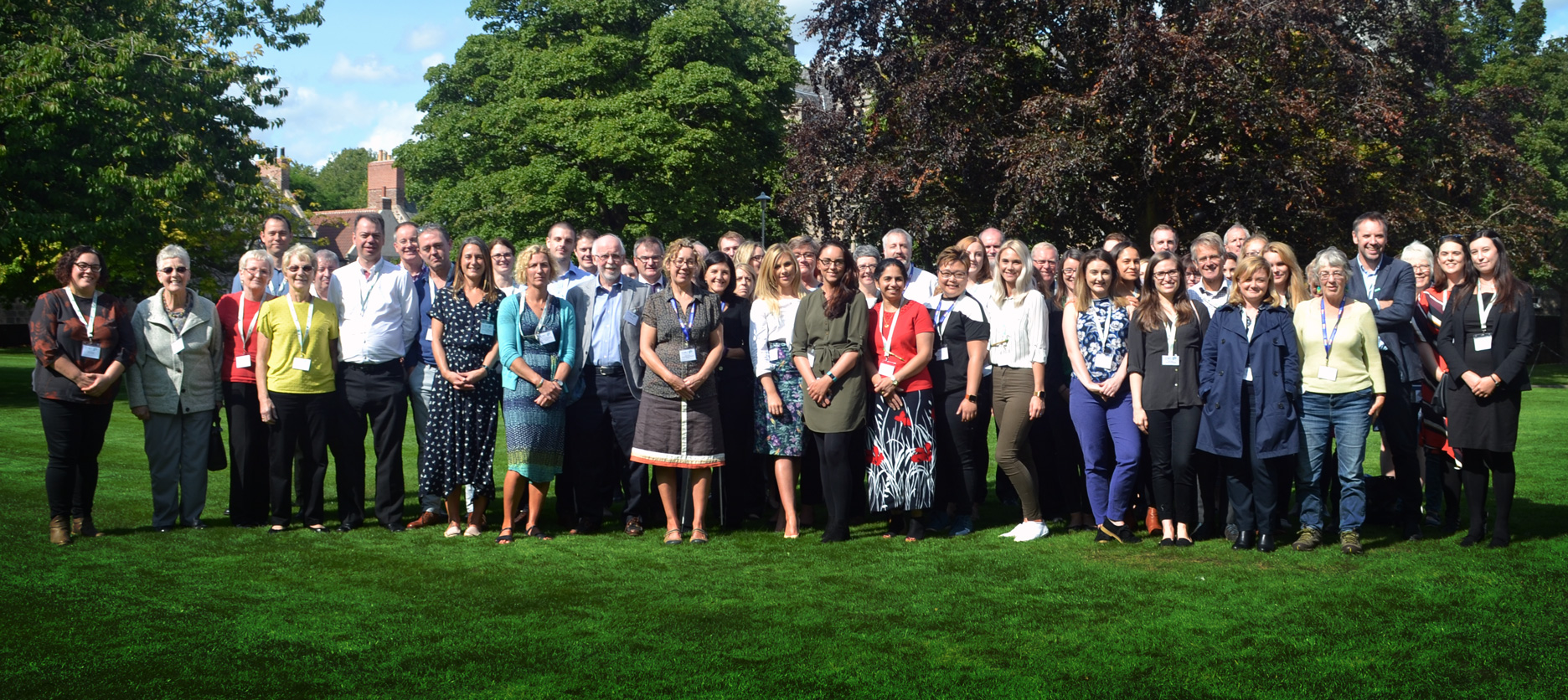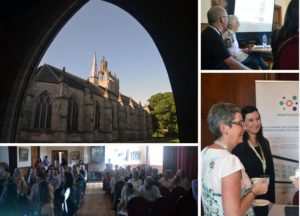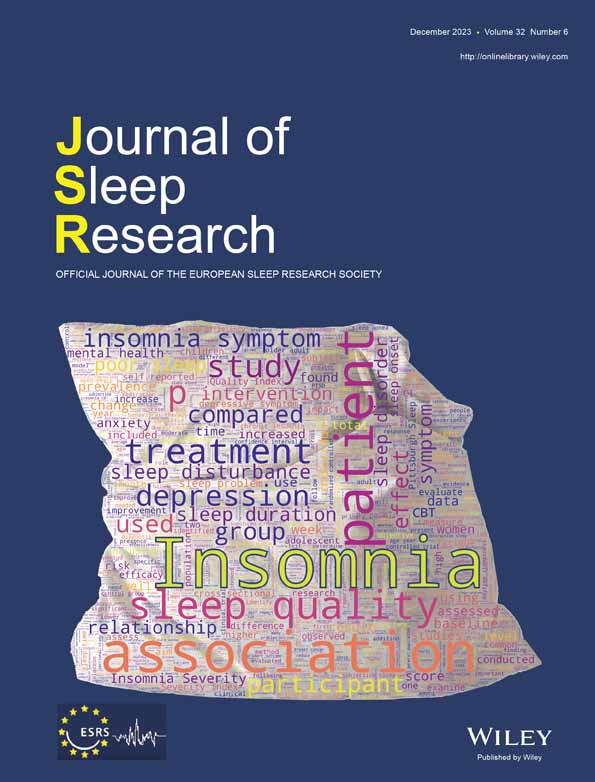
On 29 August, EPAD’s Scottish team were lucky enough to visit the stunning University of Aberdeen campus for the inaugural EPAD Scotland conference.
Held in the historic heart of the University, almost 80 delegates including participants, site staff and the wider Scottish EPAD team were treated to an uplifting and informative day of talks, as well as some unseasonal sunshine which saw the breakout sessions take place outside on the lawn!
After an energetic coffee session, Professor Craig Ritchie opened the day with introductions; it was great to hear everyone describe their role in the project. This was quickly followed an overview of EPAD and its place in the future of Alzheimer’s dementia research. Craig discussed why bringing the intervention timeline forward is so important for future patients and how EPAD’s unique public-private partnership is working towards this goal.
“Where we start will not be where we end in EPAD, we are learning a lot.” Professor Craig Ritchie
Professor Ritchie also announced that we now have the first tranche of data from our research participants and are taking the responsibility we have to get the best science out it, seriously.
Our research participants were firmly at the heart of the event, and next up saw Brian and Eileen, two of our participants panel members, take to the floor for a discussion. Both are hugely enthusiastic about the project and their part in it, and it was a joy to hear their insights. Brian and Eileen also had the chance to watch the video interviews they participated in at the 2018 General Assembly. It was an emotional moment for them and everyone in the room. You can watch the new research participant interview videos on EPAD’s YouTube channel.
A quick and lively coffee break and we were back in the room to hear from Craig Ritchie on the Longitudinal Cohort Study (LCS) taskforce. This included the impressive stats on our recruitment progress and the news that Scotland is doing very well in the recruitment stakes – we are a competitive bunch!
It was interesting to hear from NHS Grampian’s Catriona Murray, an Advanced Nurse Practitioner who manages the lumbar puncture procedure required of research participants. An obstacle for many potential participants, Catriona explained how well trained and professional her team are, providing reassurance to many of the participants present. She also discussed why cerebrospinal fluid is important for EPAD’s biomarkers analysis and the different positions that participants can take to make collection easier, along with some post-procedure recovery tips.
Sarah Gregory, Study Coordinator at EPAD’s lead site situated at the University of Edinburgh’s Centre for Dementia Prevention then introduced what they have learned about research recruitment and retention thus far using the Generation Scotland cohort and the PREVENT Dementia study. The team is now gearing up towards recruiting from the newly launched Scottish Brain Health Registry and believe that it will be of benefit to EPAD’s recruitment strategy in Scotland.
“The next 12 months for our site will be spent focussing on getting ready for the Proof of Concept trials and expanding the success of the participant panel across Scotland.” Sarah Gregory
Sarah also outlined how PrePAD Velocity is not only boosting recruitment, but further enriching the LCS with prodromal Alzheimer’s disease research participants, thus ensuring that the LCS can serve as a successful readiness cohort for the first PoC appendix.
NHS’s Greater Glasgow & Clyde’s Shona McKay then delivered a fantastic presentation on hard to reach groups. With EPAD recruiting almost exclusively from socio-economic groups at the top end of the scale in Glasgow, Shona asked what we should be doing to reach out to and engage those groups which are less easy to communicate with in order to drive an uptake in participation in deprived areas where elderly people are at an increased risk of developing dementia.
“EPAD’s longitudinal design lends itself well to addressing and engaging seldom heard groups across socio-economic groups.” Shona McKay
This presentation sparked some interesting discussions over lunch, which we were lucky enough to be able to eat outside. It was also the perfect weather to conduct an outdoor interview with Craig Ritchie, project co-coordinator and native Aberdonian, which you can watch here.
The afternoon session focused around workshops, giving everyone present an opportunity to give their thoughts on how EPAD’s recruitment, retention and engagement strategies are working, and give ideas and feedback for the team to take forward. These breakout sessions were hugely valuable and the outputs from these have been collated and shared with the relevant work package teams to progress.
Dr Kristy Draper picked the afternoon sessions back up with her update on the proof of concept (Poc) trials. With the PoC platform now launched and attracting a great deal of interest from the pharmaceutical sector, it was encouraging to see the how the consortium’s work is coming together to support drug development and provide trial-ready cohorts to proof-of-concept trials.
The meeting was brought to a close by Professor Alison Murray, the Roland Sutton Chair of Radiology at the University of Aberdeen, who leads research into cognitive resilience within the Generation Scotland subsample of Aberdeen Children of the 1950s. Utilising cognitive tests routinely used in Aberdeen schools in the 1950s and 1960s as a starting point, Professor Murray demonstrated how the effects of childhood IQ have an impact on neurological impairment in later life, with early education and mid-life occupation contributing to greater cognitive resilience.
Professor Murray’s talk was a fascinating end to an overall fascinating day. I’m pleased to say that this is just the first of what we hope will become an annual EPAD Scotland Conference. If this first conference is anything to go by, the EPAD Scotland team is set to benefit year after year.








